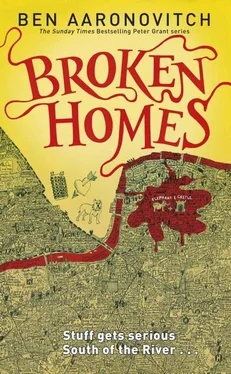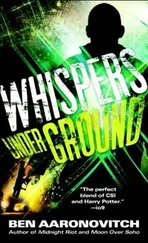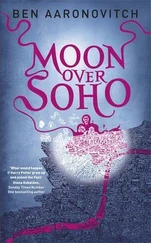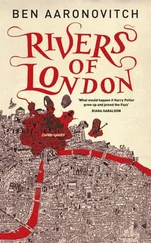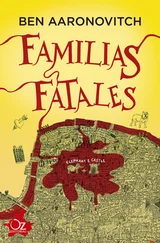Ben Aaronovitch - Broken Homes
Здесь есть возможность читать онлайн «Ben Aaronovitch - Broken Homes» весь текст электронной книги совершенно бесплатно (целиком полную версию без сокращений). В некоторых случаях можно слушать аудио, скачать через торрент в формате fb2 и присутствует краткое содержание. Год выпуска: 2013, ISBN: 2013, Издательство: Orion, Жанр: sf_fantasy_city, на английском языке. Описание произведения, (предисловие) а так же отзывы посетителей доступны на портале библиотеки ЛибКат.
- Название:Broken Homes
- Автор:
- Издательство:Orion
- Жанр:
- Год:2013
- ISBN:9780575132498
- Рейтинг книги:4 / 5. Голосов: 1
-
Избранное:Добавить в избранное
- Отзывы:
-
Ваша оценка:
- 80
- 1
- 2
- 3
- 4
- 5
Broken Homes: краткое содержание, описание и аннотация
Предлагаем к чтению аннотацию, описание, краткое содержание или предисловие (зависит от того, что написал сам автор книги «Broken Homes»). Если вы не нашли необходимую информацию о книге — напишите в комментариях, мы постараемся отыскать её.
Broken Homes — читать онлайн бесплатно полную книгу (весь текст) целиком
Ниже представлен текст книги, разбитый по страницам. Система сохранения места последней прочитанной страницы, позволяет с удобством читать онлайн бесплатно книгу «Broken Homes», без необходимости каждый раз заново искать на чём Вы остановились. Поставьте закладку, и сможете в любой момент перейти на страницу, на которой закончили чтение.
Интервал:
Закладка:
The image was good enough to capture the moment of anticipation as he stepped off the escalator at the top and the scan for the least crowded ticket gate. He checked his watch once again and set off purposefully for his chosen exit. Then he stopped and hesitated for a moment before turning on his heel. Heading for the down escalator and his date with the business end of a Mark II 1972 rolling stock.
It looked like he’d just remembered that he’d forgotten something.
‘It’s too quick,’ said Jaget. ‘You forget something, you stop, you think “Oh god I have to go all the way back down the escalator, do I really need whatever it is that badly?” And then you turn.’
He was right. Richard Lewis stopped and turned as smartly as if he was on a parade ground and had been given a command. As he rode back down his expression was abstracted and intent — as if he was thinking about something important.
‘I don’t know if it’s a glamour,’ I said. ‘But it’s definitely something. I think I need a second opinion.’
But I was already thinking it was the Faceless Man.
‘Tricky,’ said Nightingale after I’d lured him into the tech cave and shown him the footage. ‘It’s a very limited technique and an Underground station at rush hour is hardly an ideal environment in which to practise it. Do you have any film that shows a wide view of the booking hall?’
It took me a couple of minutes to dig out the files Jaget had sent me, not least because of his eccentric file labelling scheme. Nightingale made an impressed murmur at the ease and speed at which the ‘film’ could be manipulated. ‘Or is it called tape?’ he asked.
I didn’t tell him that it was all stored as binary information on rapidly spinning shiny discs, partly because I’d have to look up the details myself, but mostly because by the time he’d understood the technology it would have been replaced by something else.
He spent about an hour shuttling back and forth through the footage of the booking hall to see if he could spot a practitioner amongst the crowds of passengers. Nightingale’s level of concentration can be frightening, but even he couldn’t isolate anyone suspicious.
‘He might have been walking two steps behind him,’ said Nightingale. ‘It’s not as if we know what he looks like.’
Lesley, when we briefed her later, wanted to know why we were assuming it was the Faceless Man at all. ‘It could have been one of Peter’s watery girlfriends,’ she said. ‘Or something else equally weird that we haven’t encountered yet.’
I pointed out that Richard Lewis had been on the list of potential Little Crocodiles, which she agreed was a possible lead and should be checked.
‘You need to get over to his house and have a sniff around,’ she said. ‘If you find something, then we’ll know it will be worth looking into the suicide.’
‘Want to come with?’ I asked but Lesley said that while the prospect of a day trip to Swindon was an attractive one, it was a pleasure she’d have to forgo.
‘I’ve got to finish the report on Nolfi the magnificent,’ she said. There would be two reports, one for the Folly files and a sanitised version for the wider Met. Lesley was particularly good at coming up with the latter.
‘I’m going to blame it on his attempt to do the lighter fluid trick but with brandy,’ she said. ‘That way his official statement — that he was doing a magic trick that went wrong — will match the evidence.’
It went without saying that we weren’t going to charge him. Instead he was going to get what we like to call ‘the safety lecture’ from Dr Walid. Half an hour with the good doctor and his brain sections was enough to put anyone off magic for life.
So it was that I climbed into the Asbo on my tod and headed up the M4 for the wilds of the Thames Valley.
It rained most of the way and the radio threatened floods.
Richard Lewis had lived in a Grade II listed thatched cottage with its own private approach lane and what looked like, through the rain, its own orchard. It was the sort of madly picturesque place that gets bought by people with rural fantasies and a shed full of cash. Looking at it, I really wished I’d had time to go over Mr Lewis’s finances — because there was no way he could afford a place like this on what he earned from Southwark Council. I wondered if he’d had his hand out under the table. Maybe he’d got greedy and asked for a bit extra from the wrong person.
Or his registered civil partner, a Mr Phillip Orante, could have been rich.
I parked outside next to a Sloane green Range Rover, less than a year old and never been driven off road judging by its wheel arches, and crunched up the wet gravel drive to the front door. Although it was early afternoon, the low cloud and the drizzle meant it was gloomy enough for the inhabitants to need to put the downstairs lights on. Seeing that someone was at home was a relief, since I’d decided not to call ahead.
You don’t call ahead if you can avoid it, on account of it always being better to arrive on someone’s doorstep as a horrid surprise. Things generally go smoother if the people you’re talking to don’t have a chance to rehearse their alibis, think about what they’re going to say, hide evidence, bury body parts — that sort of thing.
The oak front door had an authentic bell pull with what sounded like a cow-bell attached to the other end. The thatch overhanging the porch tried to drip water down my back so I stepped away while I waited. The grounds around the house — they were too large for me to call it a garden — were damp and quiet in the soft rain. Somewhere around the corner I could smell a wet rose bush.
The door was opened by a middle-aged woman with a round brown face with black eyes and short dark hair — Filipino if I had to guess. She wore a white plastic apron over a blue polyester tunic and a pair of yellow washing-up gloves. She didn’t seem thrilled to see me.
‘Can I help you?’ She had an accent I didn’t recognise.
I identified myself and asked to speak to Mr Orante.
‘Is this about poor Richard?’ she asked.
I said it was, and she told me Phillip’s heart was broken.
‘Such a shame,’ she said and invited me in and told me to wait in the living room while she went to fetch Orante.
The interior of the cottage was disappointingly furnished in bog standard designer bland — cream-coloured sofas, steel tube occasional furniture and the walls painted in estate-agent-friendly shades of tinted white. Only the pictures on the walls, black and white photographic prints for the most part, had any character. I was examining a verite portrait of a couple of New Orleans jazzmen when the woman in the apron returned with Phillip Orante.
He was a short, slight man in his late thirties. Despite the thinner face, his features were similar enough to the older woman’s to mark her as a relative. His mother, I thought, or at the very least an older sister or aunt. She seemed a bit young to be his mother.
The beauty of being the police, though, is you can satisfy your curiosity without worrying about being socially awkward.
‘Are you a relative?’ I asked.
‘Phillip is my son,’ she said. ‘My eldest.’
‘She came over to, ah, help out, you know,’ said Phillip. ‘After.’
He motioned for me to sit down, I automatically waited until he’d chosen the sofa before perching on an occasional chair — the better to maintain my height advantage. We worked our way through the normal conversational openings — I was sorry for his loss and he was sorry I was sorry and would I like some coffee.
You always take the coffee from bereaved relatives, just as you always start with the rote expression of condolences. The banality of the exchange is what helps calm the witness down. People who’ve had their lives disrupted are looking for order and predictability — even if it’s just in the little things. That’s when being PC Plod is at its most useful — look stolid, talk slowly and, ninety per cent of the time they’ll tell you everything you want to know.
Читать дальшеИнтервал:
Закладка:
Похожие книги на «Broken Homes»
Представляем Вашему вниманию похожие книги на «Broken Homes» списком для выбора. Мы отобрали схожую по названию и смыслу литературу в надежде предоставить читателям больше вариантов отыскать новые, интересные, ещё непрочитанные произведения.
Обсуждение, отзывы о книге «Broken Homes» и просто собственные мнения читателей. Оставьте ваши комментарии, напишите, что Вы думаете о произведении, его смысле или главных героях. Укажите что конкретно понравилось, а что нет, и почему Вы так считаете.
